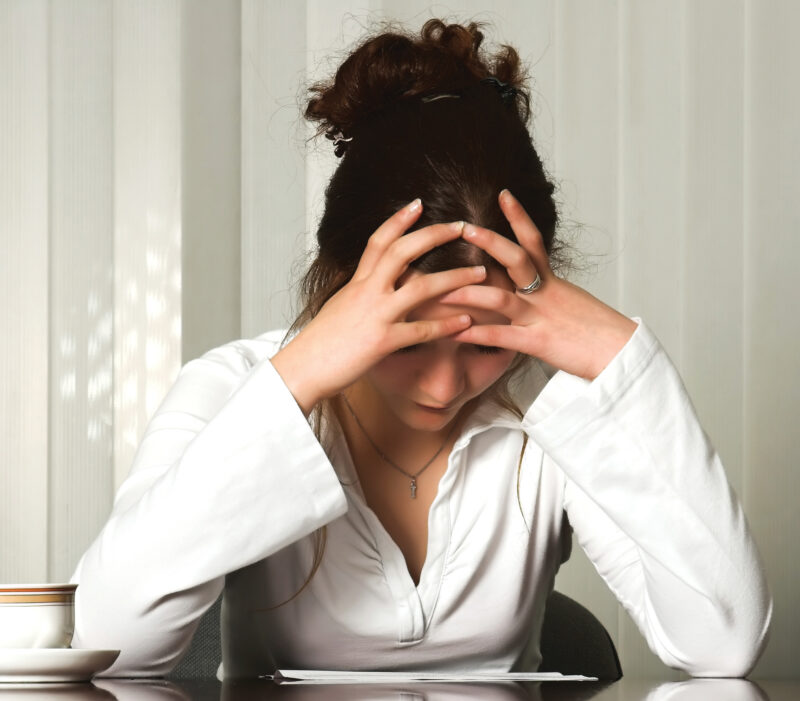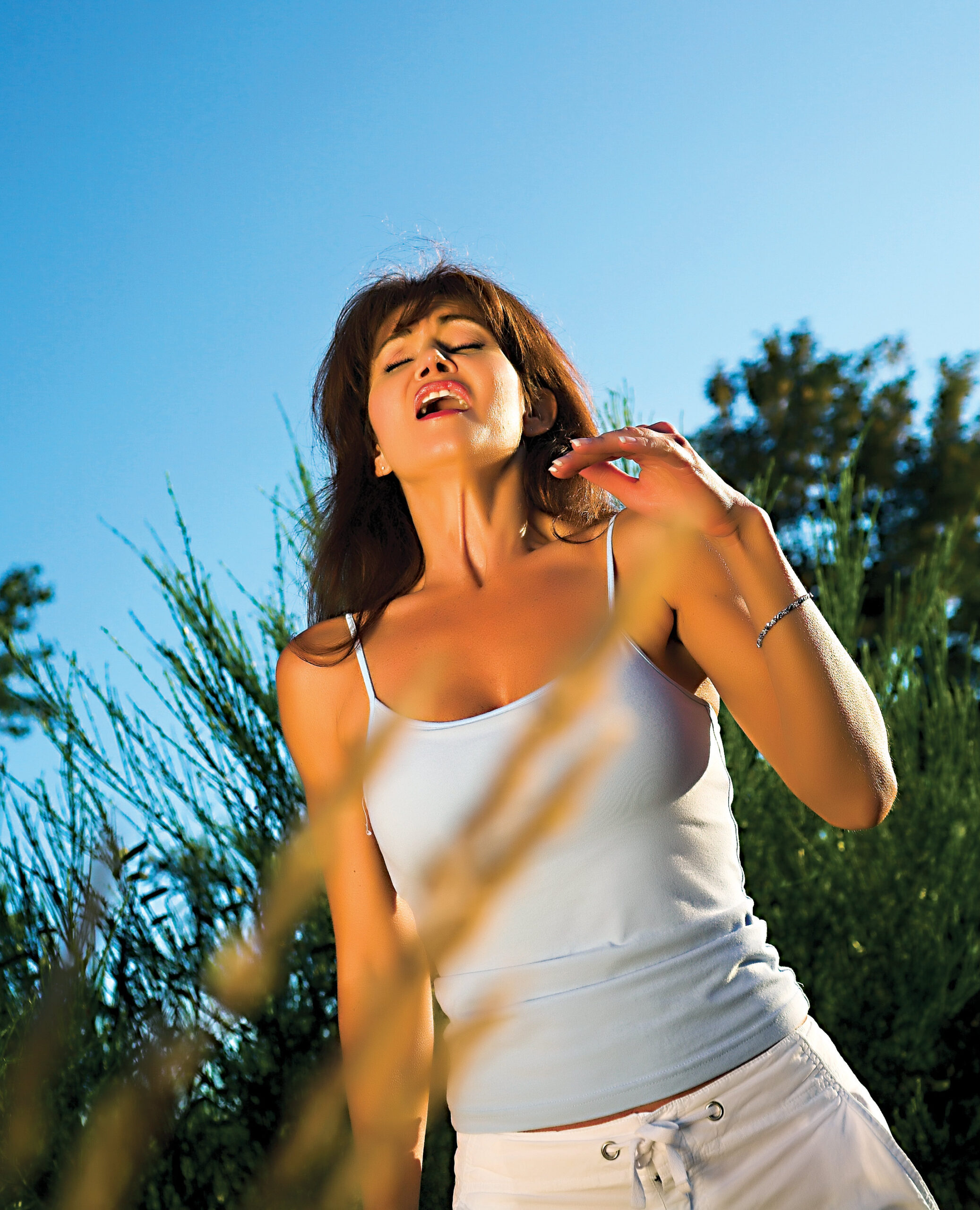You try to get up from your bed and the world around you spins. Or you are in a car, when you feel so
light-headed, you want to puke. Dizziness can occur due to a host of reasons. Know the cause and treat the symptoms correctly, advises Dr Parul R. Sheth
As a child it was fun spinning and making yourself dizzy to see the room spinning around you. But as an adult, the feeling is unpleasant. You feel ‘spaced out’ and when the dizziness is severe you could even lose your consciousness briefly. Dizziness comes with lightheadedness, feeling faint, weakness and unsteadiness. Lightheadedness occurs when there is not enough blood reaching your brain. The good news is that the spinning of the head is disabling and incapacitating but is not life-threatening. And most causes of dizziness quickly get better on its own or can be easily treated.
How would you describe your dizziness?
Feeling light-headed or a feeling that you are about to faint Loss of balance, unsteady feeling that you are going to fall Your head spinning with a headache Motion sickness, nausea Confused, anxious and panicky feeling Vertigo—you and your surroundings are spinning Weakness, fatigue, difficulty concentrating Blurred vision during quick head movements A combination of all of the above
What makes your head spin?
Anxiousness, panic attacks or being stressed: You have to make a presentation in front of a crowd, you listen to sudden shocking news, etc. Suddenly, you feel dizzy, lightheaded with a feeling of faintness or being ‘spaced out’. Over exertion can also cause dizzy spells.
Alcohol consumption, hangover: The alcohol in the blood affects the ability of the red cells to carry oxygen thus reaching less oxygen to the brain. This makes you feel light-headed and dizzy. When consumed in large amounts, it causes dizziness—the first sign of intoxication. The dizziness usually passes as the alcohol is removed from the bloodstream, but in chronic alcoholism, the dizziness may become permanent.
Vertigo: It causes spinning and dizziness. Vertigo can occur when you change the position of your head. Sitting up or moving around makes it worse. Severe vertigo may be accompanied with nausea and vomiting. This happens because of a problem with nerves and the balance mechanism in your inner ear, which senses movement and changes in your head position.
Labyrinthitis or inflammation of your inner ear can cause sudden, intense vertigo that may persist for several days, along with nausea, vomiting and imbalance. It can be incapacitating, requiring bed rest. Labyrinthitis usually follows a cold or flu because of virus infection of the inner ear.
Meniere’s disease, which involves excessive build-up of fluid in your inner ear causes vertigo, loss of balance and tinnitus or ringing in the ear.
People with migraine or headache attacks may suffer from vertigo. Common migraine triggers are certain foods, altered sleep, stress or hormonal changes related to your menstrual cycle.
An acoustic neuroma, a noncancerous growth on the vestibular nerve, which connects the inner ear to your brain, can cause dizziness and loss of balance. Rarely, vertigo can be a symptom of serious neurological problems such as a stroke, brain hemorrhage or multiple sclerosis or a brain tumour.
Motion sickness: If you are motion sick, amusement park rides are strictly a no-no for you. Rapid changes in motion while riding a roller coaster or travelling in boats, cars or even airplanes can upset your equilibrium and make you dizzy. The dizziness may occur with nausea, vomiting, sweating
and headache.
Hunger: Starvation or hunger often produces feelings of dizziness, which are resolved by eating. Alternatively, thiamine and other nutritional deficiencies or diet-related disorders such as diabetes can also cause dizziness. Dehydration due to diarrhoea and vomiting can also cause the
dizzy spells.
Ageing: Older people often lose balance and may feel dizzy especially if they move suddenly. Simply standing up too fast or getting out of bed quickly can lead to dizziness. This happens with increasing age. The impulses that are sent from the eye to the brain and then to the spinal cord require increased travel time.
Brain injury: Any injury to the head can cause mild concussion or even brain damage. A blow to the head that causes dizziness accompanied by a headache may indicate a serious brain injury, even if there is no loss of consciousness. A severe headache along with dizziness and disturbance of the senses of balance, sight, and smell suggests the possibility of a brain abscess or tumour.
Cardiac problems: A feeling of faintness (pre-syncope as it is medically termed) can cause nausea, pale skin and dizziness because of a drop in blood pressure, conditions which hamper the blood flow reaching the heart such as atherosclerosis, partially blocked arteries, cardiomyopathy, disease of the heart muscle, abnormal heart rhythm, etc.
Medications: Some of you may experience orthostatic hypotension, when a drop in blood pressure occurs while changing from a lying down position to sitting down to standing up. This could be a side effect of certain medications such as the ones used to treat high blood pressure or heart disease.
Inhalants: Sniffing of various household products can cause a feeling of euphoria followed by dizziness along with mental confusion, hallucinations and blackouts. These inhalants include hair spray, gasoline, spray paint, cleaning liquids, etc.
Excessive exercise: You may suffer from dizzy spells either during exercise or afterwards. And this may happen if you happen to exercise on an empty stomach. For instance, exercising early in the morning, that is after about 8 - 10 hours after your last meal (previous day’s dinner). Your body is low on energy with your sugar and carbohydrate (glycogen) stores becoming low. Also, while you exercise, you lose out on water and salts. All this can put a strain on your body giving you dizzy spells. Consider eating cereals, fruits or porridge one hour before you exercise. Drink water before, during and after exercise, but in moderation. Quick movements from standing to lying down can cause dizziness in people suffering from low blood pressure. Also iron deficiency can make your head spin when you exert. If you have been away from exercise for some time or you are over-exercising, then sudden exertion can cause spells of dizziness. ‘Go slow’ is the mantra.

Taking care
- If your head spins, you feel dizzy or faint, sit or lie down and rest. Do not make sudden movements. The feeling may pass within a short time. Drink plenty of water or lime juice with a pinch of salt and sugar to feel better. Ginger is a good remedy for nausea; ginger ale works well. When you feel dizzy, make sure that you deep- breathe slowly and easily.
- When vertigo and labyrinthitis attacks strike, lie still and rest. Avoid changes in position and bright lights. Be careful about driving or working with a machine. Medications such as anti-histamines, sedatives or medicine for nausea help relieve the symptoms. For Meniere’s disease, surgery may be necessary.
- Know the warning signs of heart attack and stroke. Seek immediate medical advice.
- Look out for side effects of medications, which your doctor prescribes for any of your health problems.
- Read the labels on over-the-counter medicines carefully.
- Elderly people should take care and avoid sudden, jerky movements to prevent falls.
- If you feel light-headed and dehydrated, drink fluids. In case of excessive vomiting, you may require hospitalisation.
- Drink plenty of fluids to avoid dehydration, which can cause or worsen lightheadedness.
- Treat ear infections, colds, flu, sinus congestion and other respiratory infections on time. This can prevent dizziness.
- Avoid using caffeine, alcohol and tobacco. Excessive use of these substances can restrict your blood vessels and worsen your signs and symptoms.


